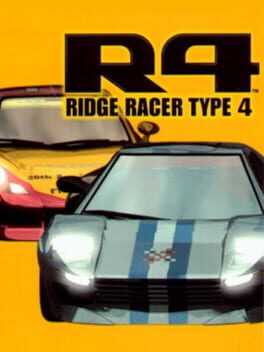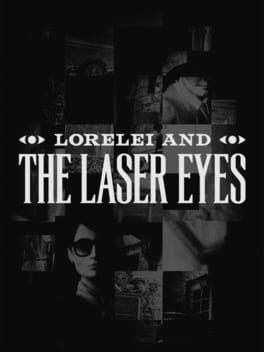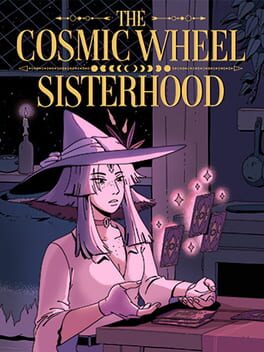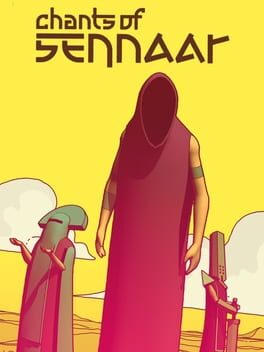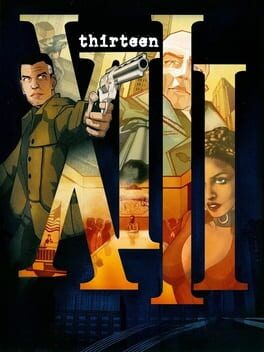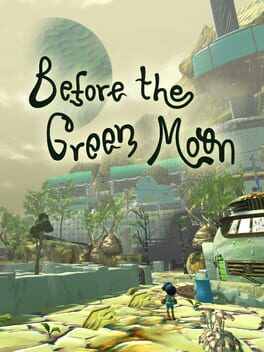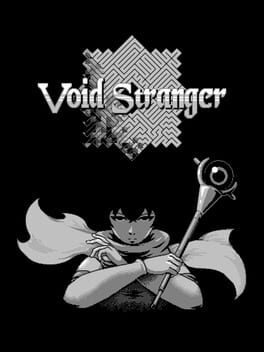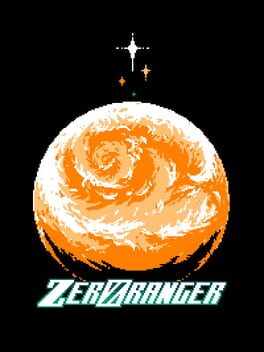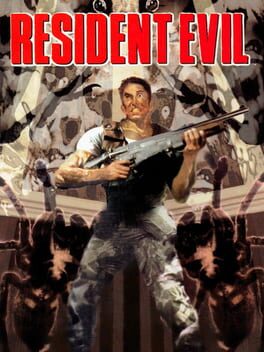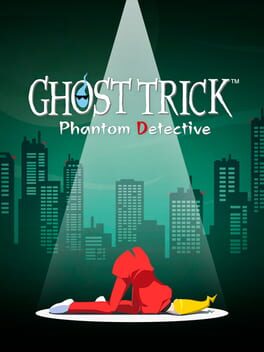Sci_Karate
BACKER
2000
1998
The most aesthetically solid racer I've ever played.
Track variety is a little disappointing, and the AI racer systems are underwhelming.
But - when the car is sideways and I'm blasting through a corner, the sheer momentum of the handling model pushes me to death-grip the controller as if I'm trying not to fly out the window from G-force.
R4 lives up to the hype, and is worth returning to a quarter-century later.
Track variety is a little disappointing, and the AI racer systems are underwhelming.
But - when the car is sideways and I'm blasting through a corner, the sheer momentum of the handling model pushes me to death-grip the controller as if I'm trying not to fly out the window from G-force.
R4 lives up to the hype, and is worth returning to a quarter-century later.
an incredible game... until the fatigue sets in.
Maybe playing a 90 hour game in two weeks exacerbates the problem, but man... once the magic and mystique of a new area starts to fade, there's a real "Hey! This is just chores!!" moment.
I wish armor upgrades didnt require grinding dragon parts.
I wish the quests were more unique.
I wish the depths and sky islands had more variety.
I wish the koroks were less repetetive.
I wish every Ultrahand puzzle didnt have a solution lying around nearby.
I wish the shrines were more interesting.
I wish the caves weren't so samey.
That being said: the first 10 hours and the last 5 hours were incredible. Also, I played the whole thing like a full-time job because I was so enthralled. So maybe it is very good, actually.
Maybe playing a 90 hour game in two weeks exacerbates the problem, but man... once the magic and mystique of a new area starts to fade, there's a real "Hey! This is just chores!!" moment.
I wish armor upgrades didnt require grinding dragon parts.
I wish the quests were more unique.
I wish the depths and sky islands had more variety.
I wish the koroks were less repetetive.
I wish every Ultrahand puzzle didnt have a solution lying around nearby.
I wish the shrines were more interesting.
I wish the caves weren't so samey.
That being said: the first 10 hours and the last 5 hours were incredible. Also, I played the whole thing like a full-time job because I was so enthralled. So maybe it is very good, actually.
In the opening hours of Breath of the Wild, on the southeast edge of the Great Plateau, there's a ravine. Crossing it would give the player a direct path to one of their mandatory objectives.
Initially, this route seems impassable -- but, on the player's side of the ravine, there's a tree. The tree sits right near the edge, and it's just a touch taller than the ravine is wide. Nearby, an axe is lodged in a tree, just outside a building labelled "Woodcutter's House". The tree looks ready to topple in the direction opposite the axe at any moment.
Reading this, the solution to this problem seems obvious - take the axe, fell the tree at the edge of the ravine, and cross it. But to actually play this segment, and to piece the elements together for yourself, feels like a moment of intelligent problem-solving. It feels like you've cheated your way into a clever shortcut, even though this is a carefully-designed vignette, with a designer's hand nudging you towards an intended outcome.
Games-likers often seem obsessed with the idea of emergent or fringe solutions. Try typing "the designers never thought of this!" or "i can't believe the designers thought of this!" into your search engine of choice, and bask in the millions of identical-looking thumbnails.
Conversely, I feel like we often undervalue the experience of encountering a problem, feeling the hand (or the voice, or the mind, or the spirit) of a designer gently guiding the player towards a solution, and following them along for the journey. It's an experience that's a little more book/movie/song-esque than game-like, despite being fundamentally interactive, in that the player/reader/viewer/listener gives themselves up to the authorial voice of the artist for a moment. When we play games, there's always a conversation being held between the player and the designer, but in these moments, it is made tangible and laid bare.
Lorelei and the Laser Eyes is not a particularly hard puzzle game. It is not particularly weird, nor creative, nor thrilling, nor revelatory. However - every single one of its puzzles feels Designed. Solving the smaller puzzles feels like being in on a wry joke with the author; solving something larger feels like sharing in an intimately whispered secret.
This is a lot of words to say that none of the puzzles in Lorelei and the Laser Eyes are best-in-class, but all of them are Solid, Clean, and Designerly. Many of its best offerings can be solved on a pad of paper by someone who has no familiarity with the game at all. Pick this one up if you need a new and modern puzzle book to sit down with on a nice afternoon.
Initially, this route seems impassable -- but, on the player's side of the ravine, there's a tree. The tree sits right near the edge, and it's just a touch taller than the ravine is wide. Nearby, an axe is lodged in a tree, just outside a building labelled "Woodcutter's House". The tree looks ready to topple in the direction opposite the axe at any moment.
Reading this, the solution to this problem seems obvious - take the axe, fell the tree at the edge of the ravine, and cross it. But to actually play this segment, and to piece the elements together for yourself, feels like a moment of intelligent problem-solving. It feels like you've cheated your way into a clever shortcut, even though this is a carefully-designed vignette, with a designer's hand nudging you towards an intended outcome.
Games-likers often seem obsessed with the idea of emergent or fringe solutions. Try typing "the designers never thought of this!" or "i can't believe the designers thought of this!" into your search engine of choice, and bask in the millions of identical-looking thumbnails.
Conversely, I feel like we often undervalue the experience of encountering a problem, feeling the hand (or the voice, or the mind, or the spirit) of a designer gently guiding the player towards a solution, and following them along for the journey. It's an experience that's a little more book/movie/song-esque than game-like, despite being fundamentally interactive, in that the player/reader/viewer/listener gives themselves up to the authorial voice of the artist for a moment. When we play games, there's always a conversation being held between the player and the designer, but in these moments, it is made tangible and laid bare.
Lorelei and the Laser Eyes is not a particularly hard puzzle game. It is not particularly weird, nor creative, nor thrilling, nor revelatory. However - every single one of its puzzles feels Designed. Solving the smaller puzzles feels like being in on a wry joke with the author; solving something larger feels like sharing in an intimately whispered secret.
This is a lot of words to say that none of the puzzles in Lorelei and the Laser Eyes are best-in-class, but all of them are Solid, Clean, and Designerly. Many of its best offerings can be solved on a pad of paper by someone who has no familiarity with the game at all. Pick this one up if you need a new and modern puzzle book to sit down with on a nice afternoon.
Cosmic Wheel Sisterhood is made of incredibly interesting game design ideas, but is occasionally let down by inconsistent writing quality.
That's not to say the writing is bad -- some of it is very good! -- but there are passages that felt like mid-2010s AO3 prose instead of Professional Videogame Writing, if that makes sense.
There's also some occasional tension between your own role-play and the game's text. Certain dialogue choices ask you to express explicit character traits (e.g. do you value Romance, Knowledge, or Power), but the player-character will often say things that directly contradict the character-writing you've done on your own.
With that said: if you think a cute wiccan lesbian visual novel deckbuilder is your sort of game, you should absolutely play this.
That's not to say the writing is bad -- some of it is very good! -- but there are passages that felt like mid-2010s AO3 prose instead of Professional Videogame Writing, if that makes sense.
There's also some occasional tension between your own role-play and the game's text. Certain dialogue choices ask you to express explicit character traits (e.g. do you value Romance, Knowledge, or Power), but the player-character will often say things that directly contradict the character-writing you've done on your own.
With that said: if you think a cute wiccan lesbian visual novel deckbuilder is your sort of game, you should absolutely play this.
2023
Chants of Sennar takes a good while to get going - the first few hours feel like an extended tutorial - but once it does, it's really excellent.
I think if this came out five years ago, it would have blown my mind, but in a post-Outer Wilds/Obra Dinn/Golden Idol/etc world, it's just Quite Good instead of Truly Incredible.
I think if this came out five years ago, it would have blown my mind, but in a post-Outer Wilds/Obra Dinn/Golden Idol/etc world, it's just Quite Good instead of Truly Incredible.
2003
XIII is suprisingly good for a 2003 ubisoft stealth shooter.
The cast is lead by David Duchovny and Adam West. The comic book cel-shading is evocative and charming. The music is regularly entertaining.
But the game just doesn't come together.
Both West and Duchovny deliver lines in a bored monotone - there's a reason Actors and Voice Actors are often considered distinct categories. They're distinct skills!
The shooting is above-average for 2003, but clunky and irritating for 2022.
The checkpoint system is often infuriating.
The stealth is wonky and underdeveloped.
The narrative ends on a cliffhanger and a "To be continued" that has never been resolved.
There's a good game in here. It's just buried under mediocrity.
The cast is lead by David Duchovny and Adam West. The comic book cel-shading is evocative and charming. The music is regularly entertaining.
But the game just doesn't come together.
Both West and Duchovny deliver lines in a bored monotone - there's a reason Actors and Voice Actors are often considered distinct categories. They're distinct skills!
The shooting is above-average for 2003, but clunky and irritating for 2022.
The checkpoint system is often infuriating.
The stealth is wonky and underdeveloped.
The narrative ends on a cliffhanger and a "To be continued" that has never been resolved.
There's a good game in here. It's just buried under mediocrity.
2023
Cocoon is an impeccably designed puzzle game with excellent art direction, but the narrative and the world felt lacking.
I had a great time blasting through the whole thing in one sitting, but I don't think this will be lingering with me for long -- certainly not in the way INSIDE did.
Somerville has all of Limbo/INSIDE's narrative design, but little of the gameplay design.
Cocoon has all of the gameplay design, but little of the narrative design.
Hopefully Geometric Interactive comes back in a few years with something that nails both.
I had a great time blasting through the whole thing in one sitting, but I don't think this will be lingering with me for long -- certainly not in the way INSIDE did.
Somerville has all of Limbo/INSIDE's narrative design, but little of the gameplay design.
Cocoon has all of the gameplay design, but little of the narrative design.
Hopefully Geometric Interactive comes back in a few years with something that nails both.
This review contains spoilers
In the beginning, there was nothing.
And then, there was Stardew Valley.
And so, the Cozy Game was born.
This is a narrative written and retold countless times in the minds and bodies of games-players the world over. It is the foundational text upon which a million pixelated seeds have been sown. It is a narrative written and retold by those with no memory.
Stardew’s popularity and immense financial success has spurred multitudinous imitators: the once-short lineage from Story of Seasons (nee Harvest Moon), to Rune Factory, to Stardew Valley, has now expanded to a monstrous family tree beyond comprehension.
And yet - the Farming Game / Life Sim remains a genre buried beneath a mountain of tropes. It is elaborated via a school of game design best equated to a bingo scorecard.
There is a fundamental strangeness to the homogeneity of farming games’ ‘cozy’' tone. It abstracts farming into something it is not -- into the kind of farming imagined by a gradeschool child.
I have a close family friend who worked on a farm in his younger years. He has taught me which animals sound most human when they cry for their mercy at the end.
Farming is difficult. It is unforgiving. It is unglamorous. It exists across an immense gulf from its beloved gaming facsimiles.
This has upsides. There are people in my life who have become avid players of games entirely because of the welcoming tonality of "Wholesome Games". Video games are a historically male space dominated by Gun Dudes with gravelly voices, and I'm glad to see a shift towards something more welcoming.
But another part of me feels like I'm watching an industry consuming and regurgitating the same video game ad infinitum. A cutesy farming ouroboros.
The Cozy Farming Game is to the early 2020s as the Brown Murder Shooter was to the early 2010s. Neither flavor of game is inherently bad. I enjoy partaking in both from time to time. But both reflect a failure to explore the depths of the medium.
The latter half of the last decade saw the brown shooter finally evolving. Games like Titanfall 2, Dusk, Doom Eternal, Wolfenstein: The New Order, and Spec Ops: The Line marked a shift in market tendency. The genre was in conversation with itself - for better or worse.
Regardless of whether or not these games were good, many games-players, me included, were happy to be playing something Similar but Different. A development upon genre; a genesis of new subgenre.
Before the Green Moon makes me excited about the future of the farming game. It is the first of its kind to make me feel something meaningful, that I will carry with me forever.
Its foundation is that of standard farming game fare - there are seeds to be sown, dead weeds to be mown, rocks to be excavated, and relationships to be navigated. But Before the Green moon appears immediately distinct from its peers from the moment the game begins.
Stardew Valley begins with your player-character escaping to the countryside to work on a farm of your own, inherited from your grandfather. You are absconding from a corporate office job where the fruits of your labor are enjoyed by uncaring C-level executives, so you can instead grow literal fruit to your own benefit.
Farming is portrayed as movement away from systemic capitalism; as an idyllic and self-sustaining method of enjoying one's life; as a movement towards a personable community that rejects the anonymity of city life. Every citizen of your small town is an individual whose inner life you are encouraged to understand for both narrative and mechanical benefit. You can fall in love. You can get married. The late game is an everlasting dream of love and small-town living. It portrays this world of cute chickens and fishing minigames by way of a vibrantly colored and super-nintendo-esque render.
Before the Green Moon is rendered in a blurry-textured N64-like manner, with blobby characters and sharp environmental vertices. You are not going to farm for fun - you are farming to get paid. This is not your farm - it is a corporate farm, in a ruined town, whose population is largely faceless. Some stranger used this farm before you, and you will never know so much as their name. It is overgrown with weeds. Only the bare minimum tools remain. It is the farm of someone who maybe once loved it, but who has since moved on and left it in a state of disrepair.
The planet is dying. It is a desiccated husk of what it once was, and the rich have already left it behind. They have learned to terraform, and live now on a Green Moon. Your planet still has some use, though: farming. Seeds are sent down a space elevator to be planted, and are then sent back up in exchange for money. More cynically, you could consider it company scrip. This scrip can then be exchanged for tools and resources, which are also sent via the elevator. Characters around you remark on occasion that, if the moon folk could ever learn to farm efficiently up there on their green rock, then they'll have no further use for those who still live below. In this way, the exchange of your crops for scrip allows you to survive on your barren world, but simultaneously funds the research that would ultimately doom its inhabitants.
You have come to town to farm. You have come to town to farm for money. You have come to town to farm for money so that you can buy a ticket to the moon, and leave it all behind.
What do you invest in that sort of transient life?
It is, in a way, a bit like going to college. From the moment you arrive, any friend you make will almost certainly one day be a person you Once Knew, but now know only through distant photos. Perhaps an occasional phonecall. Perhaps a rare visit, to reminisce upon the people you were then, but can scarcely recall. It is a place Between. A place After. A place Before. As all places are.
Before the Green Moon makes this far more poignant in that, in order to properly attend to your farm each day, you rarely have enough time to connect with the people around you. A daily communion, a moment fishing with a friend, a conversation with the strange kid out back, an afternoon hunting for chickens to bring home and care for - these moments are all there to be had, but there's so little space for them when you're busy watering tobacco plants.
Better yet - the game never forces you to leave. During your first week at the farm, you're told the price of a Ticket to The Moon. You do not ever have to buy this ticket. Even if you do, your only reward will be seeing the game end. You can spend every day talking with your neighbors and grilling up fish from the reservoir, forever, if you like. You can spend every dollar you make on chicken feed and bedroom decor. You can find love, and spend every day visiting your partner.
Even so - as you continue to rake in the moon-scrip, there will eventually come a moment when you realize you nearly have enough money for the ticket. You can look at the calendar, see the next scheduled day when the elevator will come and go, and realize that, if you want, you could leave along with it.
I had this moment, and considered staying, just for one more season. And then, in the coming in-game days, perhaps by coincidence, it seemed like I had started to exhaust the game's content. A new feeling set in - that there was nothing left for me here. That it was time to go.
So I bought the ticket.
I said my goodbyes to everyone I'd met. My in-game partner cried. They knew, deep down, that I would leave one day, but had hoped against hope that I would stay for them. I still had five more days - but every day, I'd receive the same dialogue from the other characters, over and over. I stopped planting seeds. I let my remaining crops die. I dumped my tools into storage. I left the farm as I'd found it: Dead. Abandoned. Overgrown. The last two days, I went to bed early. There was nothing to stay awake for.
On the final day, I ran through town one last time. I shuffled through the anonymous crowd of other moongoers. I made my way to the elevator. It was already evening.
A character who had gone missing earlier in the plot suddenly returned. No matter what I tried, I couldn't get them to trigger a farewell dialogue. I realized that it might not be possible to trigger both their return and their farewell dialogue on the same day. If I was right, I'd have to stay til the morning to say goodbye. I checked the calendar. I could stay a while longer, just to get closure with this one friend, my favorite character in the whole cast - but I would have to spend two weeks in an empty town of people with nothing to say to me; with a farm I'd already let wither.
I still don't know if there actually was a farewell dialogue to trigger or not. I'd rather never know. With just an hour left in the day, I rushed onto the elevator.
Once on the elevator, you get tucked away into a small room. The decor is sparse, grey, utilitarian. A single window gives a view out into space.
The elevator's ascent is slow. It is quiet. There is little to do but watch the planet fall away from view.
At the end of each in-game season, the town gathers to watch the green moon rise. A moon-viewing party. The cast of characters takes a moment to reflect. It is a quiet moment of companionship.
As the elevator approaches the peak of its ascent, the green moon falls into frame from above. Here, alone, in a sterile box a quarter-million miles above the earth, you hold a final moon-viewing party for one.
The moon fills the frame. Its atmosphere is as thick, green, and opaque as it was from the earth. And then, having never seen the moon's surface, and without ever learning what waits for you there, the credits roll.
You've already seen everything the game has to offer you. It's offered up everything it had ever promised: the digital facsimile of a farm, of a town, of a home, of a ruined wasteland, of where you left your friends behind, where you lived back then, in a different time, Before the Green Moon.
And then, there was Stardew Valley.
And so, the Cozy Game was born.
This is a narrative written and retold countless times in the minds and bodies of games-players the world over. It is the foundational text upon which a million pixelated seeds have been sown. It is a narrative written and retold by those with no memory.
Stardew’s popularity and immense financial success has spurred multitudinous imitators: the once-short lineage from Story of Seasons (nee Harvest Moon), to Rune Factory, to Stardew Valley, has now expanded to a monstrous family tree beyond comprehension.
And yet - the Farming Game / Life Sim remains a genre buried beneath a mountain of tropes. It is elaborated via a school of game design best equated to a bingo scorecard.
There is a fundamental strangeness to the homogeneity of farming games’ ‘cozy’' tone. It abstracts farming into something it is not -- into the kind of farming imagined by a gradeschool child.
I have a close family friend who worked on a farm in his younger years. He has taught me which animals sound most human when they cry for their mercy at the end.
Farming is difficult. It is unforgiving. It is unglamorous. It exists across an immense gulf from its beloved gaming facsimiles.
This has upsides. There are people in my life who have become avid players of games entirely because of the welcoming tonality of "Wholesome Games". Video games are a historically male space dominated by Gun Dudes with gravelly voices, and I'm glad to see a shift towards something more welcoming.
But another part of me feels like I'm watching an industry consuming and regurgitating the same video game ad infinitum. A cutesy farming ouroboros.
The Cozy Farming Game is to the early 2020s as the Brown Murder Shooter was to the early 2010s. Neither flavor of game is inherently bad. I enjoy partaking in both from time to time. But both reflect a failure to explore the depths of the medium.
The latter half of the last decade saw the brown shooter finally evolving. Games like Titanfall 2, Dusk, Doom Eternal, Wolfenstein: The New Order, and Spec Ops: The Line marked a shift in market tendency. The genre was in conversation with itself - for better or worse.
Regardless of whether or not these games were good, many games-players, me included, were happy to be playing something Similar but Different. A development upon genre; a genesis of new subgenre.
Before the Green Moon makes me excited about the future of the farming game. It is the first of its kind to make me feel something meaningful, that I will carry with me forever.
Its foundation is that of standard farming game fare - there are seeds to be sown, dead weeds to be mown, rocks to be excavated, and relationships to be navigated. But Before the Green moon appears immediately distinct from its peers from the moment the game begins.
Stardew Valley begins with your player-character escaping to the countryside to work on a farm of your own, inherited from your grandfather. You are absconding from a corporate office job where the fruits of your labor are enjoyed by uncaring C-level executives, so you can instead grow literal fruit to your own benefit.
Farming is portrayed as movement away from systemic capitalism; as an idyllic and self-sustaining method of enjoying one's life; as a movement towards a personable community that rejects the anonymity of city life. Every citizen of your small town is an individual whose inner life you are encouraged to understand for both narrative and mechanical benefit. You can fall in love. You can get married. The late game is an everlasting dream of love and small-town living. It portrays this world of cute chickens and fishing minigames by way of a vibrantly colored and super-nintendo-esque render.
Before the Green Moon is rendered in a blurry-textured N64-like manner, with blobby characters and sharp environmental vertices. You are not going to farm for fun - you are farming to get paid. This is not your farm - it is a corporate farm, in a ruined town, whose population is largely faceless. Some stranger used this farm before you, and you will never know so much as their name. It is overgrown with weeds. Only the bare minimum tools remain. It is the farm of someone who maybe once loved it, but who has since moved on and left it in a state of disrepair.
The planet is dying. It is a desiccated husk of what it once was, and the rich have already left it behind. They have learned to terraform, and live now on a Green Moon. Your planet still has some use, though: farming. Seeds are sent down a space elevator to be planted, and are then sent back up in exchange for money. More cynically, you could consider it company scrip. This scrip can then be exchanged for tools and resources, which are also sent via the elevator. Characters around you remark on occasion that, if the moon folk could ever learn to farm efficiently up there on their green rock, then they'll have no further use for those who still live below. In this way, the exchange of your crops for scrip allows you to survive on your barren world, but simultaneously funds the research that would ultimately doom its inhabitants.
You have come to town to farm. You have come to town to farm for money. You have come to town to farm for money so that you can buy a ticket to the moon, and leave it all behind.
What do you invest in that sort of transient life?
It is, in a way, a bit like going to college. From the moment you arrive, any friend you make will almost certainly one day be a person you Once Knew, but now know only through distant photos. Perhaps an occasional phonecall. Perhaps a rare visit, to reminisce upon the people you were then, but can scarcely recall. It is a place Between. A place After. A place Before. As all places are.
Before the Green Moon makes this far more poignant in that, in order to properly attend to your farm each day, you rarely have enough time to connect with the people around you. A daily communion, a moment fishing with a friend, a conversation with the strange kid out back, an afternoon hunting for chickens to bring home and care for - these moments are all there to be had, but there's so little space for them when you're busy watering tobacco plants.
Better yet - the game never forces you to leave. During your first week at the farm, you're told the price of a Ticket to The Moon. You do not ever have to buy this ticket. Even if you do, your only reward will be seeing the game end. You can spend every day talking with your neighbors and grilling up fish from the reservoir, forever, if you like. You can spend every dollar you make on chicken feed and bedroom decor. You can find love, and spend every day visiting your partner.
Even so - as you continue to rake in the moon-scrip, there will eventually come a moment when you realize you nearly have enough money for the ticket. You can look at the calendar, see the next scheduled day when the elevator will come and go, and realize that, if you want, you could leave along with it.
I had this moment, and considered staying, just for one more season. And then, in the coming in-game days, perhaps by coincidence, it seemed like I had started to exhaust the game's content. A new feeling set in - that there was nothing left for me here. That it was time to go.
So I bought the ticket.
I said my goodbyes to everyone I'd met. My in-game partner cried. They knew, deep down, that I would leave one day, but had hoped against hope that I would stay for them. I still had five more days - but every day, I'd receive the same dialogue from the other characters, over and over. I stopped planting seeds. I let my remaining crops die. I dumped my tools into storage. I left the farm as I'd found it: Dead. Abandoned. Overgrown. The last two days, I went to bed early. There was nothing to stay awake for.
On the final day, I ran through town one last time. I shuffled through the anonymous crowd of other moongoers. I made my way to the elevator. It was already evening.
A character who had gone missing earlier in the plot suddenly returned. No matter what I tried, I couldn't get them to trigger a farewell dialogue. I realized that it might not be possible to trigger both their return and their farewell dialogue on the same day. If I was right, I'd have to stay til the morning to say goodbye. I checked the calendar. I could stay a while longer, just to get closure with this one friend, my favorite character in the whole cast - but I would have to spend two weeks in an empty town of people with nothing to say to me; with a farm I'd already let wither.
I still don't know if there actually was a farewell dialogue to trigger or not. I'd rather never know. With just an hour left in the day, I rushed onto the elevator.
Once on the elevator, you get tucked away into a small room. The decor is sparse, grey, utilitarian. A single window gives a view out into space.
The elevator's ascent is slow. It is quiet. There is little to do but watch the planet fall away from view.
At the end of each in-game season, the town gathers to watch the green moon rise. A moon-viewing party. The cast of characters takes a moment to reflect. It is a quiet moment of companionship.
As the elevator approaches the peak of its ascent, the green moon falls into frame from above. Here, alone, in a sterile box a quarter-million miles above the earth, you hold a final moon-viewing party for one.
The moon fills the frame. Its atmosphere is as thick, green, and opaque as it was from the earth. And then, having never seen the moon's surface, and without ever learning what waits for you there, the credits roll.
You've already seen everything the game has to offer you. It's offered up everything it had ever promised: the digital facsimile of a farm, of a town, of a home, of a ruined wasteland, of where you left your friends behind, where you lived back then, in a different time, Before the Green Moon.
2023
It is very difficult to say anything meaningful about Void Stranger without completely spoiling the experience.
I can at least give you this: Void Stranger does many incredible things that only video games can, and it does them more adeptly than anything else I have ever played.
It is among the very best of its medium.
I can at least give you this: Void Stranger does many incredible things that only video games can, and it does them more adeptly than anything else I have ever played.
It is among the very best of its medium.
2018
Immaculate videogame. It lives loudly in my brain, tucked away in a manila folder labeled "top ten favorite games of all time, probably".
The music is "hype". The pixelart is "gorgeous". The shooting is "clean" and "tight" and "rad". The meta-structure is "mindblowing", "innovative", and "one of like three games to do genuinely interesting things with a modern filesystem".
I've never been a shmup person, but ZeroRanger's extra-life difficulty/progression system perfectly eased me into the genre. It led me by the hand into a pleasantly-sized kiddie pool. It then used hidden hydraulic infrastructure to lower the floor beneath me, deepening the pool. It did so at a pace I found comfortable.
I love shmups now. I play lots of them to try and fill the ZeroRanger-shaped hole in my heart. You should carve out a similarly-shaped chunk of tissue from your own body. It will cost you either nine or eleven dollars. You will have lots of fun.
The music is "hype". The pixelart is "gorgeous". The shooting is "clean" and "tight" and "rad". The meta-structure is "mindblowing", "innovative", and "one of like three games to do genuinely interesting things with a modern filesystem".
I've never been a shmup person, but ZeroRanger's extra-life difficulty/progression system perfectly eased me into the genre. It led me by the hand into a pleasantly-sized kiddie pool. It then used hidden hydraulic infrastructure to lower the floor beneath me, deepening the pool. It did so at a pace I found comfortable.
I love shmups now. I play lots of them to try and fill the ZeroRanger-shaped hole in my heart. You should carve out a similarly-shaped chunk of tissue from your own body. It will cost you either nine or eleven dollars. You will have lots of fun.
2023
2022
1996
I enjoyed Resident Evil, and I appreciate its contributions to the medium, but some elements of the design have aged so poorly they've become outright offensive.
This is made more egregious in the wake of an ongoing survival horror renaissance, with titles like Signalis and the Resident Evil 2-3 remakes polishing off the sharpest edges of the original Resident Evil's formula.
That said - the game is still fundamentally good, just occasionally infuriating.
This is made more egregious in the wake of an ongoing survival horror renaissance, with titles like Signalis and the Resident Evil 2-3 remakes polishing off the sharpest edges of the original Resident Evil's formula.
That said - the game is still fundamentally good, just occasionally infuriating.
An immensely endearing visual novel tethered to a mediocre puzzle/adventure game
The puzzles are plagued by frequent "I Get It" moments, particularly in the front half.
Moments of "Yes, I know what I need to do next, please let me skip this animation I've seen thrice so I can get to the next thing" make me feel like I'm going to explode.
I'm aware this is something of a Me Problem, and those less sensitive to this sort of thing will have a much better time.
The puzzles are plagued by frequent "I Get It" moments, particularly in the front half.
Moments of "Yes, I know what I need to do next, please let me skip this animation I've seen thrice so I can get to the next thing" make me feel like I'm going to explode.
I'm aware this is something of a Me Problem, and those less sensitive to this sort of thing will have a much better time.

